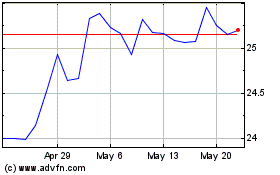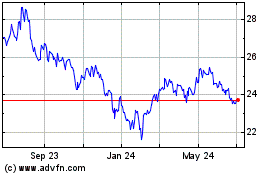Thanks to the advent of ETFs, there are plenty of options available
for investors to buy up shares in the Chinese market. Easily
the most popular is the
iShares FTSE China Large Cap ETF
(FXI) which has over $5 billion in assets under
management.
Even though this is the most accepted way to gain exposure to
Chinese stocks, a new type of Chinese ETF investment has burst onto
the scene lately; the China A-Shares ETF.
These types of shares trade in Shanghai and Shenzhen that are
currently closed off to many Western investors. Only Qualified
Foreign Institutional Investors and Renminbi Qualified Foreign
Institutional Investors have access to these shares.
However, global investors can access these markets via the
Market Vectors China ETF (PEK),
PowerShares China A-Share Portfolio
(CHNA) and the newly launched
db X-trackers
Harvest CSI 300 China A-Shares Fund (ASHR) (read: China
A-Shares ETFs Explained).
Tumbling China A-Shares ETFs
The lackluster economic scenario in China has not only crushed the
popular ETFs, but China A-Shares ETFs have also not been spared.
While both PEK and CHNA have tumbled more than 10% in the last one
month, ASHR has fallen in the high single digits.
A deeper look at the index tracked by these funds reveal the reason
for the fall. Both ASHR and PEK track the CSI 300 Index. The
index’s heavy exposure to Financials and Industrials sectors
(almost 50% allocation) can be blamed for the poor performance of
the above ETFs.
Both these sectors have delivered lackluster performance in 2013.
In fact, the China
Financials ETF (CHIX) has
tumbled 11% in the last one year (read: China ETFs Tumble to Start
2014).
Reasons for the Fall
The world’s second largest economy has lately divulged a series of
economic readings, revealing a slowing economy. The high growth
rates achieved in yester years on the back of massive debt could
now be a thing of the past.
The Purchasing Managers' Index (PMI) for China in both factory
activity and the services sector declined in December, indicating a
slowdown in the country’s growth. New business expansion was the
slowest in six months.
Moreover, the Chinese economy is expected to report 7.6% growth in
2013, representing the weakest growth rate since 1999. However,
some leading analysts predict a figure even below 7%.
Apart from the unimpressive growth numbers, official data suggests
that China’s local government debt has soared 70% over the past
three years to 10.6 trillion yuan.
China’s unbalanced fiscal policy and shadow banking are cited as
the main reasons for this massive debt problem. The Chinese
government’s heavy investment in public infrastructure projects,
which usually generate low long-term returns, aggravated the debt
problem.
The Recent Trigger
China’s financial sector again took a beating at the beginning of
2014 as the new State Council guidelines proposed stricter
regulations for shadow bank lending.
The shadow banking system operates outside the regulated financial
market, and permits banks and finance companies to lend money to
businesses and the government sector at high interest rates.
The immense popularity of shadow banking in China during recent
years is blamed on the highly regulated banking system of the
country. Tight regulations have made shadow banking a popular way
to lend and borrow money (see all the Asia Pacific ETFs here).
However, the lenders of the shadow banking system, which themselves
borrow from regulated banks, have made a whole bunch of
questionable loans that could default. Defaults on loans can
trigger broader financial crises.
Moreover, fear of another cash crunch towards the end of this
month, ahead of the Chinese New Year holiday, has raised fresh
concerns.
The recent fear of a broader financial crisis and a cash crunch led
PEK and ASHR to fall around 5% each in the last one week, while
CHNA has dropped around 3%.
Is There Any Hope?
While stricter lending norms and new regulations to limit growth on
unregulated loans will hamper short-term credit growth, implying a
lower GDP growth rate, it is expected to be beneficial for the
Chinese economy in the long run.
Moreover, the implementation of several social and economic reforms
over the next five years will reinvigorate the economy (read: China
ETFs Jump on Government Reform Afterglow).
Bottom Line
Though the China A- Share ETFs are currently in bad shape, it can
be a good option for long-term investors if the government can
successfully implement reforms aimed at a sustainable growth rate
and reduction in its massive debt burden.
However, these ETFs do look to remain volatile, and certainly will
see bigger swings than its multi-national focused peers like FXI,
so make sure to use caution when trading in this relatively new
slice of the market.
Want the latest recommendations from Zacks Investment Research?
Today, you can download
7 Best Stocks for the Next 30
Days. Click to get this free report >>
DB-HRVST CSI300 (ASHR): ETF Research Reports
PWRSH-CHA A-S P (CHNA): ETF Research Reports
ISHARS-CHINA LC (FXI): ETF Research Reports
MKT VEC-CHINA (PEK): ETF Research Reports
To read this article on Zacks.com click here.
Zacks Investment Research
Want the latest recommendations from Zacks Investment Research?
Today, you can download 7 Best Stocks for the Next 30 Days. Click
to get this free report
Xtrackers Harvest CSI 30... (AMEX:ASHR)
Historical Stock Chart
From Jan 2025 to Feb 2025

Xtrackers Harvest CSI 30... (AMEX:ASHR)
Historical Stock Chart
From Feb 2024 to Feb 2025
